The following review contains spoilers for SKY Castle.
How far would you go to protect your reputation? How far would you go to secure your child’s future? How far would you go to achieve your goals? This drama, with an initial premise that sounds anything but exciting, tackles these tough questions while bringing its viewers on an emotional rollercoaster ride. Kicking off with a bang in its first episode (literally), this satirical drama explores the consequences of greed and ambition in the cutthroat education industry of South Korea while following the four main families who reside in SKY Castle–its name being a reference to the three most prestigious universities in Korea.
The drama’s strengths lie in technical areas like the immersive acting of the cast, the brilliant camerawork, and set design, but more importantly, it is storytelling done right. The drama’s characterization shines with its array of flawed and highly relatable characters. We may hate them, especially at their weakest or worst moments, but we cannot deny that we see certain parts of them in ourselves. Furthermore, the fact that these characters always act in line with their backgrounds and their own deep-rooted motivations makes it difficult to dislike them completely, not when we are able to understand them to a certain extent.
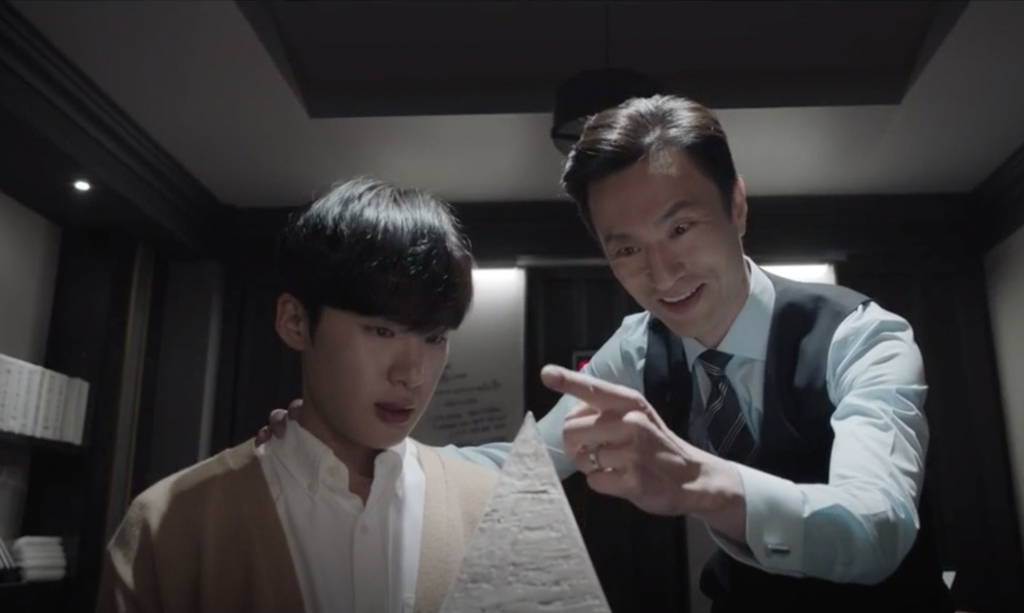
Even law professor Cha Min-hyuk (Kim Byung-chul), who is the most exaggerated character in the drama, had notable moments which resonated deeply with me. His obsession with his pyramid and the success it represents is often played for comedic effect in the drama, but it was so heartbreaking to watch him futilely cling on to his ambitions because there was nothing else left for him. In an instant, he lost all that was familiar to him, and all he could do was to return to the dreams that he had been holding on to for a majority of his life. It was so frustrating to see him act in an incorrigible manner, but I recognised my own rigidity in him as well. It is surely a strength of this drama’s writers to make viewers feel for even the worst of characters.
The way the actors fully immerse themselves in their meaty roles throughout the show definitely helps too. Perhaps it is because this is a cast made up of experienced but relatively low profile actors, especially for the “students” of the cast. Right from the get-go, I was able to see Kim Bo-ra as Kim Hye-na, or Yoon Se-ah as No Seung-hye; these actors really embraced their roles and made the characters come alive.
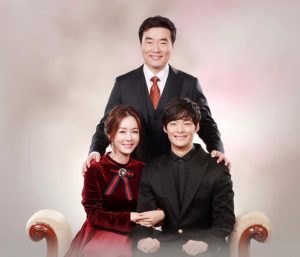
The characters are also nuanced, such that even more straightforward and commonly “good” characters such as Hwang Chi-young (Choi Won-young) and Lee Soo-im (Lee Tae-ran) have an added layer of depth and moral greyness. For example, after Soo-im discovers how academic coach Kim Joo-young (Kim Seo-hyung) manipulated her former students making grievous decisions, she seeks to expose Joo-young through writing a book. While her intentions are seemingly righteous, her project raises ethical questions of how this would impact the main victims of the issue, student Park Young-jae (Song Geon-hee) and his parents, Lee Myung-joo (Kim Jung-nan) and Park Soo-chang (Yu Seong-ju). For the former residents of SKY Castle, their lives were pretty much ruined by Joo-young. Regarding the book, the other residents rightly point out that publicising the Park family’s story would result in a lot of gossip and possibly worsen their situation, especially since she had yet to get their permission. Of course, the residents were concerned with their own estate’s reputation as well, but their opposition is valid. Fortunately, this causes Soo-im to check and rethink her motivations and decisions as well.
Chi-young’s expose on Kang Joon-sang’s (Jung Joon-ho) fraudulent behaviour as a surgeon in a university hospital is also a “righteous” move on Chi-young’s part, and is in line with the morally upright and strong character he has displayed from the start. However, it directly arose because he was annoyed about Joon-sang getting promoted — would he have written the article at that precise time if Joon-sang was not going to be promoted? Were his motivations more for truly exposing the state of the hospital or preventing/delaying Joon-sang’s promotion? These questions are ones that I had about each character throughout the show, and SKY Castle really manages to drive home the point that no person on earth is completely good or bad.
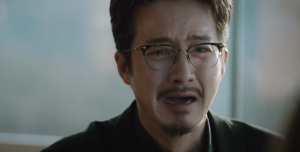
While the drama is mainly about the education system, and getting into prestigious universities, its heart is definitely centered around the complex relationships parents share with their children. The drama offers a whole spectrum of relationships and starkly contrasts the impacts of these relationships. This message is recurrent throughout the drama: the choices of parents today can affect the future of their children in long-lasting and sometimes unexpected ways.
For instance, the Hwang family is a clear outlier in SKY Castle because of the more relaxed attitudes of the parents towards Woo-joo’s (SF9‘s Chani) education and their overall family dynamic. It is not that they do not care about his future or his grades, rather they trust that Woo-joo knows what he wants from his life and would make the right decisions for himself. That trust was not unfounded since he had grown up to be a sweet, loving and morally righteous young man. Thanks to the love and support that Soo-im and Chi-young shower upon him, he is ultimately able to stay strong despite the immense struggles he went through in the drama.
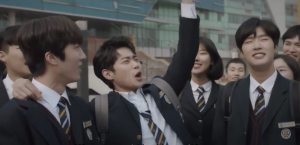
The same goes for the twins, Cha Ki-joon (Jo Byeong-gu) and Cha Seo-joon (Kim Dong-hee). They are constantly pressured by their father, who have very high expectations for them, but they also always have their mother on their side. Seung-hye is so loving and supportive towards them, and sets a good role model such that the twins are caring and loyal to their friends as well.
In fact, Seung-hye stands out as one of the best mothers of the series. She starts off pretty passive and submissive to her husband, unable to do much out of fear of him and what he would do to their children. But as she watches how Soo-im stands up for what she believes in, Seung-hye begins to stand up for her children against Min-hyuk in ingeniously effective ways. Her breakthrough moment of the series came in episode 13, where she fiercely confronts her husband in defence of her daughter Cha Se-ri (Park Yoo-na). As a mother, she was deeply disappointed by her daughter’s dishonest actions, but when things came to a head she always protected Se-ri and had her back. Seung-hye embodied this beautiful duality of motherhood perfectly, and kudos to Yoon Se-ah for her dedicated portrayal.
In contrast to these warm, supportive relationships, the suffocating, pressuring relationship that Joon-sang has with his mother, Madame Yoon (Jung Ae-ri), shaped (and damaged) him permanently. His over-fixation on his achievements and his never-ending ambition to produce more results in him making grave, irreversible mistakes. The over-bearing control of his mother over his life causes him to lead an “empty shell” of a life, to borrow one of the drama’s best quotes. It is chilling that a parallel situation plays out in the relationship between Joon-sang’s wife, Seo-jin (Yeom Jung-ah) and her daughter, Yeh-suh (Kim Hye-yoon), but this proves that such problematic relationships can continue through generations if not stopped at its roots.
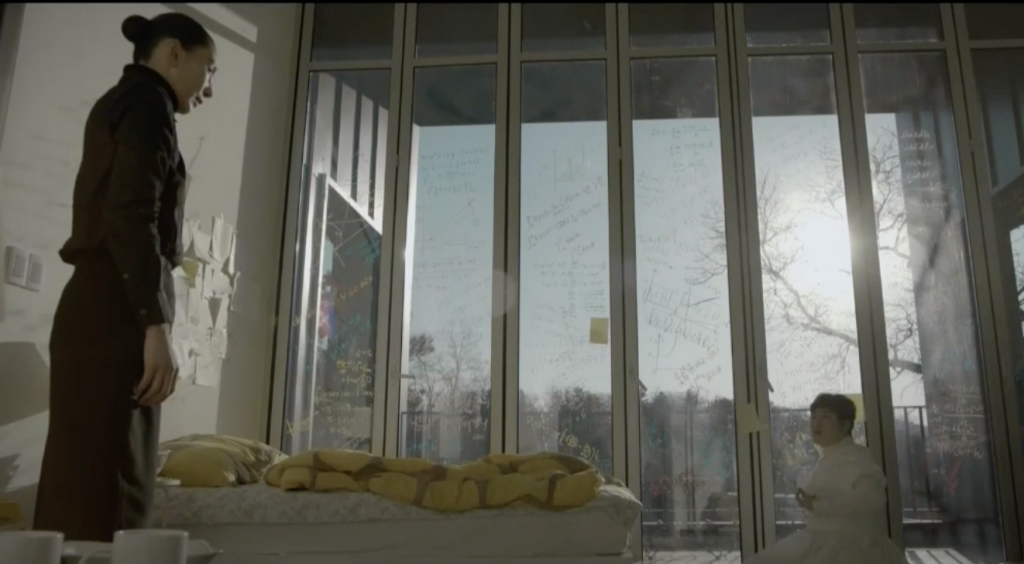
This focus on parent-child relationships is not limited to the SKY Castle residents. Other instrumental characters like Kim Joo-young and Hye-na are also very much defined by their relationships with their children/parents respectively. Joo-young is hired by Seo-jin at the beginning of the drama as a personal coach for Yeh-suh and proceeds to overturn the lives of the residents throughout the rest of the show while also teaching them many lessons.
At the root of her sinister actions, however, lies regret, resentment, and guilt about the tragedy that happened to her own genius daughter. Joo-young’s relationship with Kay (Jo Mi-nyeo) definitely humanises her, since it explains why she has become the cold, heartless person that she is. Her interactions with Kay are the only times where she is genuine and vulnerable, and these form very heartwrenching scenes in the drama. Special mention must be made of the actress Jo Mi Nyeo; despite her very few scenes, she put on 18kg for her role as Kay and acted her heart out whenever she was on screen. Her commitment to her character really elevated this part of the drama.
Hye-na is another key figure, and it was perfect casting to have the remarkable Kim Bo-ra play her. She displays a great range here, and with her gaze alone she is always able to clearly convey what the character is thinking. The boldness and charisma she displays as Hye-na often causes viewers to forget that the character is actually just a high school student, but Kim Bo-ra balances maturity with youthful vulnerability in a heartbreaking manner. Driven by her love and desire to seek justice for her mother, Hye-na goes all out, directly challenging and confronting even the most intimidating of characters. While she is at times manipulative and snakey, viewers can still empathise with her, especially considering her pitiful backstory and strong motivations.
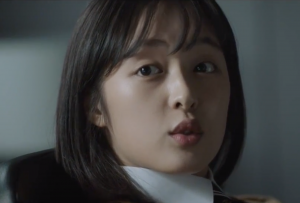
Good dramas are always a product of both its plot and its technical production, and in this case, the drama is very much enhanced by its solid camerawork and directing. Close-up shots are used frequently in this show, and while they were annoying to watch in other dramas (Moon Lovers: Scarlet Heart Ryeo comes to mind most notably) they work very well here. Rather than overt expressions, the motivations and thoughts of the characters are revealed through their subtle, micro-gestures. A shift of the eyes, a slight hesitation — these more than sufficiently express the inner conflicts that the characters are dealing with.
Yeom Jung-ah shows this especially toward the end of the drama when her character Seo-jin faces a huge moral dilemma. Viewers can see in her eyes how she got swayed repeatedly in both directions as new considerations came to mind, and thus could fully feel the weight of the decision she eventually made. It is only with a cast this talented that such directorial choices can pay off, and it really did in this case.
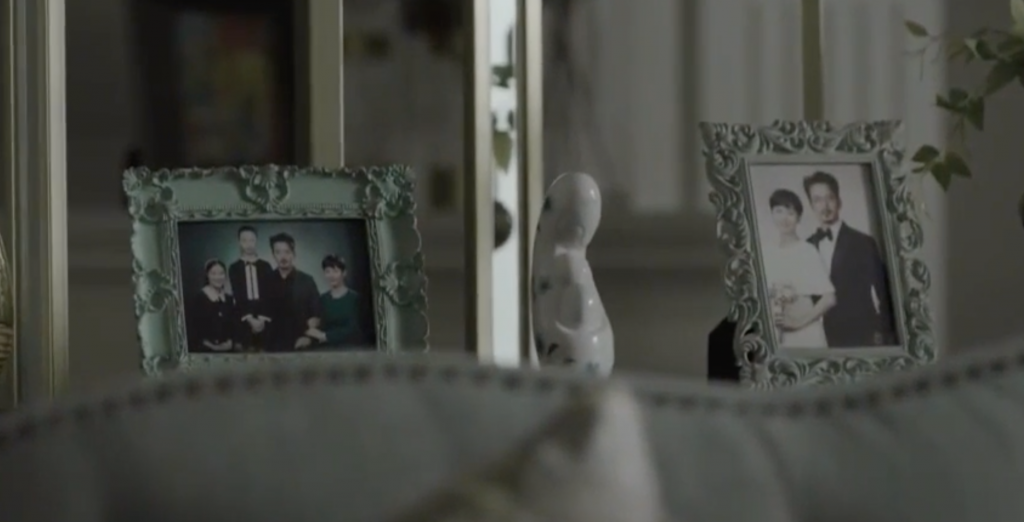
The set design was also always purposeful and reflective of the messages of the show. Case in point: in the penultimate episode there is a beautiful shot of the recurring “mother” statue in between a family portrait and a couple portrait of Seo-jin and her husband. This scene reiterated the point that beyond her duties as a wife or a head of the household, Seo-jin was a mother, first and foremost. Her love for her child triumphed all, and while it made her do some pretty despicable things throughout the series, she always acted with the interests of her child (in this case, Yeh-suh) at heart.
The placement of this shot, right after Seo-jin makes a painful decision to tell the truth, is indicative of how Seo-jin ultimately does this for her daughter. She is far from being morally upright, and frankly, if not for Yeh-suh’s mental and emotional health, she would never have willingly told the truth. Yes, it is selfish of her, but also sadly very realistic. She, and the other morally ambiguous characters in this drama force us to look at our own lives and think about the true motivations behind the “right” things we do. What or who were we really doing this for?
This drama started with low buzz and viewership ratings of around 1.7%, but ended on a historical cable-television channel high of 23.779%, beating out blockbuster dramas like Goblin or Reply 1988. The success of this drama and its word-of-mouth popularity proves just how relatable audiences (especially South Korean ones) find it. Barring its makjang-like plot elements, students and parents who have been through or are in this competitive education system find the scenarios portrayed in SKY Castle to be accurate depictions of their struggles.
While SKY Castle is clearly intended as a criticism against such an education system and against the over-fixation on academic grades, it is chilling to note that in real life, the drama has inspired many Korean parents to start searching for coaches like Kim Joo-young. This is reminiscent of one of the hardest hitting messages of the drama: that people always feel ambivalent about the tragedies of others; they are complacent in their pride that the same fate would never befall them or their families, and confident that they would never make the same foolish mistakes of others. That is, until they find themselves in the trap that had once ensnared the people they refused to learn from.
That being said, SKY Castle still had its flaws, as all dramas inevitably do. The four-episode extension (the show was originally supposed to be sixteen episodes long) took its toll on the pace of the show, with episodes 17 and 18 dragging significantly more than the rest of the show did. Viewers are also divided on the way the series ended, but I would say that it was a pleasant finish to what has become my favourite drama of 2018/19. The emotional payoff of episode 19 and the spectacular closure it provided made up for the lagging pace.
I also enjoyed the poetic finish of the drama, with strong resolutions for each character and even some scenes which mirrored the first episode. Thankfully for the characters (and for us viewers), things have changed for the better for the SKY Castle residents since its beginning. Viewers are left with the assurance that these characters will go on to lead full and fulfilling lives, and for all the emotional investment that went into these twenty episodes, I would say that it is a very satisfactory way to end this journey.
(Images via JTBC, Youtube, The Telegraph, JTBC News)


